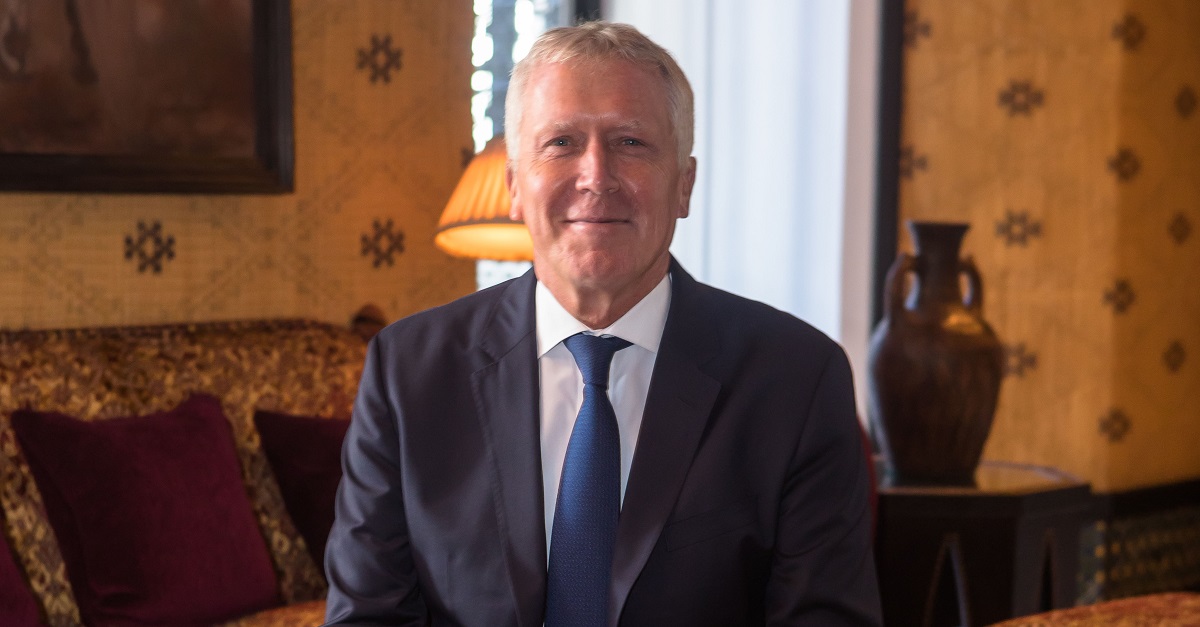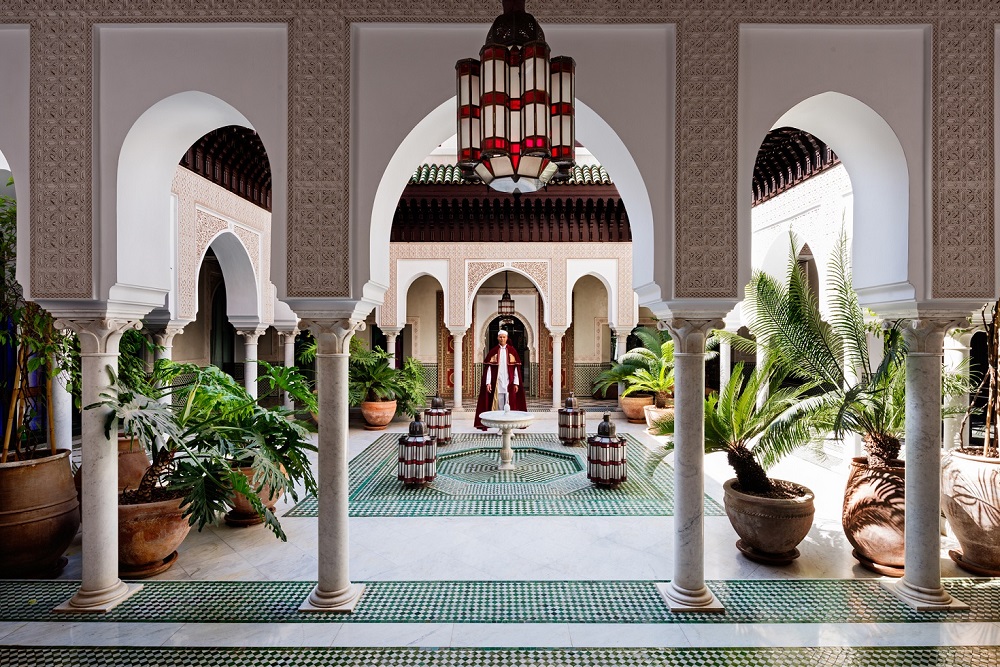The luxury Interview of...

Pierre JOCHEM
General Manager - La Mamounia Marrakech
As a ‘Grande Dame’ hotel, La Mamounia is one of the world’s most luxurious places to stay
Managing Director of La Mamounia in Marrakech, awarded Best Urban Hotel in the World in 2018, Pierre Jochem took the helm of the iconic establishment in 2014. Natural leader, excellent manager, recognized expert in luxury hotels and rich in immense international experience, Pierre Jochem began his career as Director of Food & Beverage in London (Park-Hyatt), then in Bangkok (The Regent) and Hong-Kong (Island Shangri-La). After a trip to Beijing (Manager at the Palace Hotel, Peninsula) and New York (Manager at The Pierre, Four Seasons), he ventured to New Delhi to become Director of the legendary Imperial Palace, overseeing the refurbishment, repositioning and reopening of the 5-star Palace. Finally, before embodying the magic of La Mamounia, he was Managing Director of Raffles in Singapore for 5 years and Vice-President of Asia Pacific Operations for the group.
Since 2017, Bureau d'Image regularly supports La Mamounia with luxury training for 700 employees. Twice a year, the trainers from Bureau d'Image go there to maintain a level of excellence of the teams with ever more innovative and tailor-made training, particularly for hospitality in luxury and guest-relations.
Bureau d’Image: How would you define luxury?
Pierre JOCHEM: Luxury is to go where you want, when you want, the time you want, and watch life go by.
BI: Does French luxury exist and what would its characteristics be?
PJ: French luxury is undoubtedly recognized internationally. It is marked by its history, its heritage, the art of living and hospitality ... French luxury is also the appreciation of beautiful things, from painting to floral art, and appreciating architecture or haute couture. It is also and above all a culinary art and a fine cuisine that the whole world envies.
BI: What have been the major developments in luxury hotels in recent decades?
PJ: Ten years ago, luxury hotels focused on service excellence, quality of accommodation and materials, attention to detail, but financial results were not yet as important. Today, the issue of financial performance is fully integrated and is based on the levers of the image, marketing, positioning of establishments and the exponential digitalization of our services.
BI: How do grand dame hotels stand out?
PJ: As a ‘Grande Dame’ hotel, La Mamounia is one of the world’s most luxurious places to stay. What sets grand dame hotels apart from other luxury hotels is often their history, heritage, soul. Like the Ritz in Paris, Raffles in Singapore or the Mandarin Oriental in Bangkok, La Mamounia is part of the heritage of Marrakech. All of these hotels are ultimately destinations as such. To these intangible elements, the hotels obviously add an unparalleled quality of service, infrastructures and colors which are their own and which make them unique.
BI: What leader are you? What principles guide your professional life?
PJ: I am a hard worker, constantly focused on performance. What interests me is to get better by challenging myself every day. I apply this rigor to my teams because I love this joint work for the development of everyone's skills: a rising tide lifts all boats.
BI: What requirements does the management of a luxury hotel require?
PJ: It is essential to love people: customers as well as teams. In the hotel industry, we are generalists and must know at the fingertips all the trades that compose it. From finance to hosting, marketing and catering. For this, a director must be in contact with his teams. He also has to be creative and have his own style to ensure differentiation. Whatever establishment he takes over, a director must embrace his environment and change it according to his style.
BI: What quality do we require from teams?
PJ: The desire to serve, to please and the ability to read and anticipate customer expectations in order to make them want to come back to our establishment.
BI: What wrongdoing do you think can be excused?
PJ: Someone who would make a mistake by doing something new. Attempting or being daring is not inexcusable if we learn from our mistakes and do not repeat them.
BI: Why is it essential to train your teams in service excellence?
PJ: In luxury hotels, we have no room for error in the image that the establishment and its teams reflect. Having impeccable grooming standards and showing compassion are an undeniable asset. To fully understand this, you must constantly question yourself and follow the appropriate training. They allow us to move forward and, as far as service excellence is concerned, to follow the evolution of the demands and expectations of our customers.
BI: Even in your position as CEO, do you still continue to learn about what encapsulates “luxury” and how it is embodied in many ways?
PJ: There isn’t an absolute science to it. If you try to control everything with rigidity you are doomed to fail, so it’s best to maintain a sense of curiosity and openness. On our return from the summer holidays, for example, as a team we reflect on what we should continue to do, and how we can improve our service to add value and satisfy our customers even further.
BI: What advice would you give to young professionals?
PJ: Be very certain that you will live your career with passion because luxury hotels are a world in which we must fully invest ourselves. Privacy is put on hold and you have to be persistent and stubborn.
BI: What do you recommend for men: neat beard or close shave?
PJ: Maintaining a well-groomed beard is very difficult work. The current fashion, where many men wear beards, is not really to my taste and I recommend a close shave for luxury hotels.
BI: For women: for or against red varnish?
PJ: The choice may depend on countries or environments, but I have a preference for a softer color.
BI: If luxury hotels were a color, what would it be?
PJ: Blue.
BI: An animal?
PJ: A lion.
BI: An adjective?
PJ: Happy.
BI: An emotion?
PJ: The tasting of a 1982 Petrus.
BI: A work of art?
PJ: A 12th century Burmese wooden Buddha from Bagan (historically Pagan). My first acquisition of a long collection.
BI: A motto?
PJ: Even if it is necessary to have a style and a vision, perpetual questioning is essential.
BI: A virtue?
PJ: Merit.
BI: A historical figure?
PJ: Napoleon.
